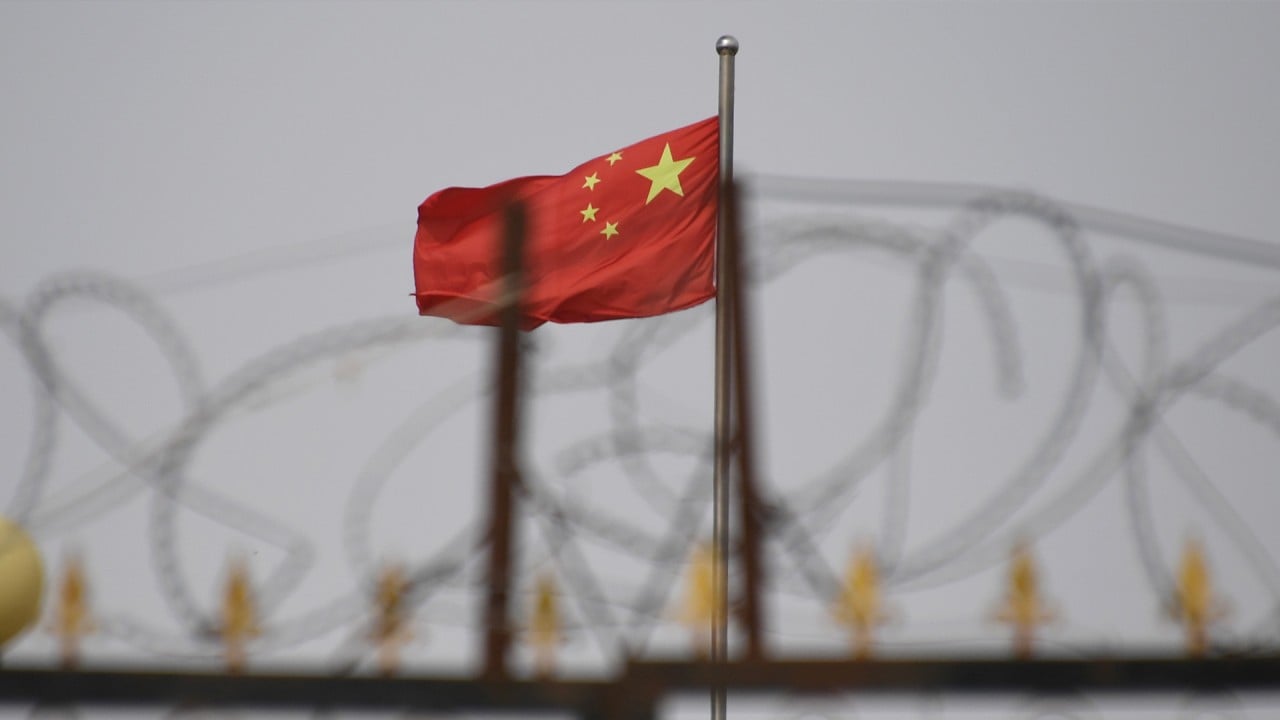
China tries to get back into the Euro game after ‘yellow card’ for its cooperation platform
- Observers expect Beijing to alter its approach after Lithuania left the ‘divisive’ 17+1 grouping for Central and Eastern European countries
- Despite complaints that the promised benefits have not materialised, other members are expected to wait to see how China responds to the setback
China is expected to adjust its approach towards Europe in an effort to keep its “17+1” platform for engaging with central and eastern European countries on track after one member quit.
Chinese Foreign Minister Wang Yi told his visitors that “calm reflections” about the current difficulties were needed.
“The departure of Lithuania is a big yellow card for the [17+1] framework, but it is unlikely to be a red one just yet,” Grzegorz Stec, an analyst at the Mercator Institute for China Studies in Berlin, said.
China says ‘isolated incidents’ won’t stop European cooperation
Stec said a chain reaction from the other 16 nations was unlikely, but they would wait to see how Beijing handled Lithuania’s departure and whether it could offer a more attractive proposition.
“The four ministers’ trip was part of a wider ‘damage control’ charm offensive deployed by Beijing,” he said.
A statement from Polish Foreign Minister Zbigniew Rau after the meeting with Wang said that the 17+1 format should remain an important pillar for cooperation between Europe and China after the “necessary adjustments” were made.
Some observers said China remained optimistic about cooperation with Europe and was unlikely to try to act tough against Lithuania.
Yu Nanping, a professor of international relations at East China Normal University, said countries such as Poland and Hungary “have emerged in Europe as a new force” that “seek to make a common voice independent of the old Europe”, for example in opposing the European Commission’s policies on immigration.

03:36
Beijing hits back at Western sanctions against China’s alleged treatment of Uygur Muslims
Yu said Rau’s comments about making the necessary adjustments to the 17+1 framework meant that “those who want to leave the mechanism leave, and those who are willing to stay will cooperate together”.
He continued: “By saying this, Poland wants to highlight its importance in 17+1 and the whole central and eastern Europe region.”
The 17+1 framework, which was established in 2012 and includes both EU and non-EU members, has caused alarm in Brussels, which fears it will undermine the bloc’s unity.
Some members have also echoed Lithuania’s complaints about the slow pace of investment, although Beijing has countered by saying it has increased trade by 85 per cent over the past nine years.
Chinese sanctions leave investment deal with EU on the rocks
Ding Chun, director of the European Studies Centre at Fudan University, said last weekend’s meeting with the four European foreign ministers was an important gesture.
“For example, Poland is a very important country for China in connecting with central and eastern European countries. While it also has a good relationship with the US, it is an important partner for China in the 17+1 mechanism,” he said. “China can continue to use Poland in the future to understand the EU’s demands and keep communications going.”
Stec said the European nations seemed to have responded positively to Beijing’s attempts to stabilise relations, but recent tensions supported the argument they should maintain a more assertive, clear-eyed approach to China.
Craig Kafura, assistant director for public opinion and foreign policy at the Chicago Council on Global Affairs, said the recent initiative was unlikely to resolve the tensions that led to the freezing of the investment deal.
“I don’t think it will do much to improve relations between China and the EU,” he said. “The vote in the EU parliament to freeze [the deal] was overwhelming, and the process of mending those ties will require engagement with the whole of the EU.”
Additional reporting by Kinling Lo


